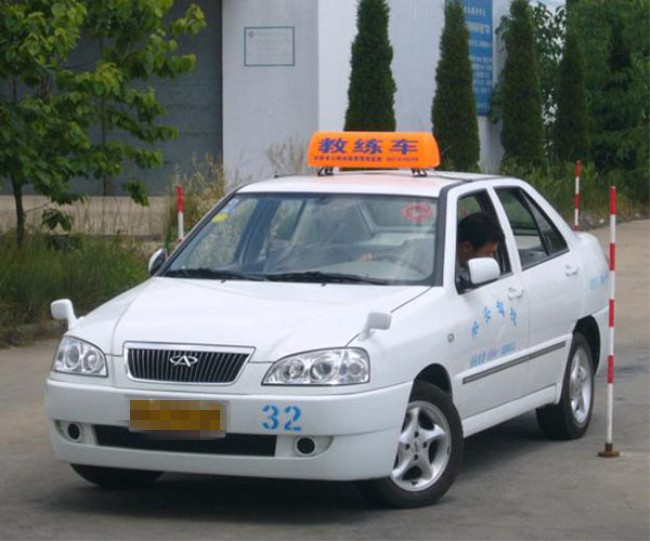When we are very skilled at driving a coach in a driving school, you will suddenly feel unfamiliar when you drive a private car, or when you have some experience in driving a car, you will go to the driving school and drive the coach. But it will not be opened. Why is it that the gap between coaches and private cars is so big? Is there anything clever about the coach? Let's talk about what makes a coach and a private car different today. I believe carefully that you all discovered that when we were driving in a driving school, we found that the color of the coach in the driving school looked special, different from other cars, and the license plate was with the word “learningâ€. . When our unfamiliar technology was driving in the car, the coach couldn't see any tension. It didn't seem to be afraid of us. I sat calmly in the co-pilot. In fact, they had "magic" before they were afraid of something. You carefully observe that there is a deputy handbrake on the co-pilot, and there is also a dedicated secondary mirror for the coach. In other words, it is equivalent to the coach sitting in the driver's seat, so everyone is assured. Do you think that when you drive a coach, even if it is uphill, you can go uphill without the accelerator? Why is this? It turned out that in order to allow trainees to turn off the flames during driving, the coaches were easier to start and improved the idle speed. However, it was more fuel efficient to increase the idle speed. There is no easy to turn off when it is loose, do you know why this is? It turned out that the coach had to extend the clutch stroke in order to make it easier for you not to turn off the engine. When the trainee got his driver's license and opened the private car, he stepped out of the throttle and “hungâ€. But when the coach driving on the driving school stepped on the accelerator, it did not run so fast. In fact, the coach lowered the sensitivity of our throttle. . Lowering the throttle sensitivity can also pad something under the throttle and also relax the throttle cable. In fact, this is the coach's intentions. In order to let you grasp the driving skills as soon as possible and improve the passing rate of the exams, some adjustments are made more or less. Therefore, we cannot drive private cars as coaches, and certainly not. The coach car opens when the private car. Polyester Polyol is a type of polyol that is derived from the reaction between a polyol (such as glycerol or ethylene glycol) and a dicarboxylic acid (such as adipic acid or phthalic anhydride). It is commonly used as a raw material in the production of polyurethane foams, coatings, adhesives, and elastomers.
Polyester polyols are typically liquid at room temperature and have a high molecular weight. They can be further reacted with isocyanates to form polyurethane materials, which have a wide range of applications in various industries, including automotive, construction, and furniture.
PU resin, also known as polyurethane resin, is widely used in the production of synthetic leather. Synthetic leather, also referred to as faux leather or artificial leather, is a man-made fabric that imitates the appearance and feel of genuine leather. PU resin is a key component in the manufacturing process of synthetic leather, as it provides the material with its durability, flexibility, and water resistance.
The process of producing synthetic leather involves coating a fabric substrate, such as polyester or nylon, with a layer of PU resin. This resin is typically applied in liquid form and then undergoes a curing process to solidify and bond with the fabric. The resulting material has a leather-like texture and appearance.
PU resin offers several advantages for synthetic leather production. It has excellent abrasion resistance, making the synthetic leather more durable and long-lasting. It also provides flexibility, allowing the material to be easily shaped and molded into different forms. Additionally, PU resin offers good water resistance, preventing the synthetic leather from absorbing moisture and becoming damaged.
Moreover, PU resin can be customized to achieve different finishes and textures, such as smooth, grainy, or embossed patterns, depending on the desired aesthetic. It can also be colored in various shades to mimic different types of leather. This versatility makes PU resin a popular choice for synthetic leather manufacturers.
Overall, PU resin plays a crucial role in the production of synthetic leather, providing the material with its desirable qualities of durability, flexibility, and water resistance.
Pu Resin For Textile Industry,Textile Coating Pu Resin,Pu Resin Powder,White Pu Resin For Textile XUCHUAN CHEMICAL(SUZHOU) CO., LTD , https://www.xuchuanpu.com
Polyester polyols have several advantages over other types of polyols. They have good chemical resistance, mechanical properties, and thermal stability. They also have low toxicity and are environmentally friendly. Additionally, polyester polyols can be easily modified to achieve desired properties, such as increased flexibility or flame retardancy.